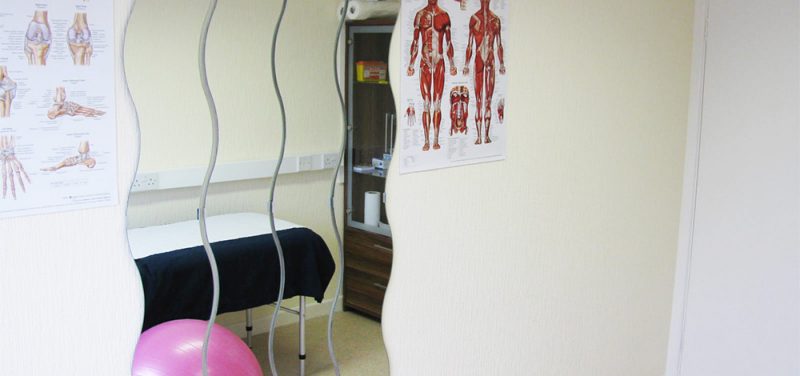Subjective Assessment
At your initial visit the Chartered Physiotherapist will take a detailed medical history, including information about your general health, current complaint together with any relevant past medical history. You will be asked about how the problem started, where your symptoms occur, what aggravates them and what eases them. The better you know your problem the easier it is for us to help you! The most important thing we need to know is what aims you have regarding your treatment.
Physical Assessment
A physical examination will take place which, in addition to determining which structure is causing the problem, seeks to discover what factors may be contributing to it. The physiotherapist will then examine the areas involved. If the spine, arms or legs need to been examined, please have shorts on hand to change into.
After your history has been taken the Physiotherapist will examine how you move. You may be asked to remove some of your clothing and perform a series of simple movements. The Physio will assess your mobility by observing your range of movement and by gently feeling your spine, shoulders and muscles as you perform the movements.
The initial assessment will probably last up to forty-five minutes and subsequent treatment sessions will typically last between thirty and forty-five minutes. Due to COVID-19 restriction we have the right to change this to comply with relevant government COVID-19 guidelines.
It should be noted that Physiotherapists are trained to recognise when physiotherapy won’t help and when to refer a patient to a doctor. Your Physiotherapist will not begin your treatment until they believe they fully understand your condition and what can be done to help.
Diagnosis & Explanation
Your condition will be diagnosed and the physiotherapist will explain why you are getting the problem in the first place. Often we will use models of the joint and muscles involved so that we leave you with a clear idea about what is going on.
Ask as many questions as you like!
Treatment & Treatment Options
We focus on quality of treatment, with precise hands-on therapy.
After diagnosing the cause of your condition the Physiotherapist will then discuss with you the options avaliable to treat your problem. We will explain what techniques we can use, and where possible, suggest the different treatments available. The Physiotherapist will then tell you how long we, and how many treatments we expect you will reqire. We expect to see considerable treatment benefit within two to six sessions, although sometimes a single treatment is sufficient. You can ask questions at anytime during your consultation if you are unsure.
Beaumont Physiotherapy also puts great importance into teaching you exercises and advise as to changes in lifestyle that may speed up recovery and prevent recurrence.
You will also be given exercises to do at home and, in some cases, advice as to how to minimise any negative impact of your lifestyle on your condition. This ‘homework’ is a crucial part of your treatment and should not be ignored. The Physioharapist is seeking to promote your body’s ability to self-heal and the exercises are an important part of this process.
The first session will also involve treating the problem as well as assessing it.
Some of the treatment methods used at Beaumont Physiotherapy:
- Joint & soft tissue mobilization(Manual therapy)
- McKenzie method
- Mobilisation and stretching techniques
- Proprioceptive Neuromuscular Facilitation (PNF)
- Individualized Functional and Rehabilitative exercises
- Postural assessment, correction and advice
- Myofascial / Therapeutic massage
- Ultrasound
- Electrical therapy modalities (TENS, interferential etc.)
- Guidance for self management of the dysfunctions is an integral part of every treatment
- Dry needling
- Manual Lymphatic Drainage
- Custom made / off the shelf orthotics available
Follow up:
If you need more sessions we will book them at your convenience… Our aim is your quick recovery, and as little disruption as possible to your life.

